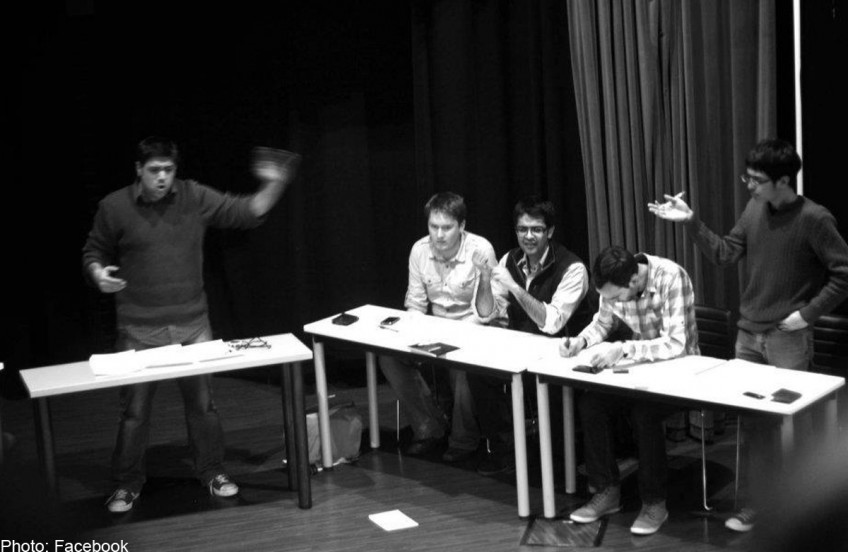Man with the silver tongue


HE IS only 22, but Ashish Xiangyi Kumar already has a number of academic accomplishments to his name.
He was the top Indian scorer for the Primary School Leaving Examination in 2004, when he also obtained a distinction for Higher Chinese, and he is a recipient of the Public Service Commission Overseas Merit Scholarship (Foreign Service).
He was also part of the Singapore National Debate Team in 2010 and 2011, which came in first in the World Schools Debating Championships in 2011, and was named Best Speaker at the World Universities Debating Championship 2015 in Kuala Lumpur, where he represented Cambridge University.
While in primary school, though, Mr Kumar, whose mother is Chinese while his father is Indian, "never really had academic ambitions".
"My primary interest was basketball," he said.
It was when he was in Secondary 2 at Raffles Institution that Mr Kumar was nudged into debating at a teacher's suggestion.
Under the impression that he was "very good at arguing with people", he took up the suggestion - and realised that he had a long way to go before he became a good debater.
Since then, he has taken part in many competitions and continues to do so.
Now reading Law at Pembroke College, Cambridge, after deferring his National Service to pursue his studies, he represents his university at various debating competitions in the UK and globally.
"Debating is the single most high-octane intellectual activity I can think of," the Singaporean student explained when asked about his interest in it.
"It is not just about knowing facts, but about marshalling them into arguments, and then choosing which arguments to make and rebut.
It also requires a huge degree of creativity, so you need lots of thinking on your feet."
When he first started debating in university, he said he "just really, really wanted to win competitions".
"But after I won the European Universities Debating Championship in 2013, there was a kind of settling down, and I got a lot less uptight about things," he said.
It is no longer the need to win that drives him to participate in so many competitions.
Instead, it is the debaters that make the competitions fun for him.
The debaters in the Cambridge Union Society, his university's debating society, "are hugely fun and a well-meaning, close-knit bunch, and travelling with them around the country is loads of fun".
The format of the debates is "pretty intense... having nice people around makes it more bearable", he added.
Apart from participating in debate competitions, Mr Kumar has also judged a number of them through the Cambridge Schools Debating Competition, organised by the Cambridge Union Society.
A three-stage competition for schools around the UK, the competition aims "to introduce schoolkids to debating and to chat with them about Cambridge if they want to.
There's an unfortunate stereotype about Oxford and Cambridge being distant and intimidating, and Cambridge Schools is part of how we try to change that", he explained.
The competition also gives less privileged-schools a fighting chance, waiving entry costs for schools that might not have a history of debating in order to give everyone a fair chance.
Although the debates themselves "aren't always the most entertaining to watch, usually because you've already seen a debate on the exact topic at least three or four times", Mr Kumar enjoys giving the students feedback after the debates.
"The rate at which the schoolkids improve and take up suggestions for improvement is extraordinary," he said.
He expects to finish his Master of Laws in July.
bhavnav@sph.com.sg

Get a copy of tabla! for more stories.